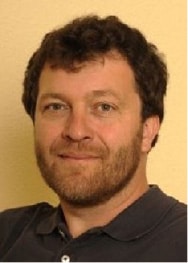“No single scientific discipline can reasonably provide a more or less miraculous pedagogical recipe”. Professor of developmental psychology, Edouard Gentaz sets the record straight in a book (Neurosciences at school: their real contribution, Odile Jacob edition). The book that reflects on the relationship between research and teaching. It shows the complexity and the essential place that teachers play in it. Coming after years of instrumentalization of science in support of an educational policy whose impasses are now apparent, the book provides a salutary reflection. Edouard Gentaz loves research and teaching. He knows how to hit hard, for example when he denounces the conflict of interest between official prescriptions and private editions. For E Gentaz the neurosciences will not revolutionize the school.
Is this book a reaction to the imperialism of neuroscience?
Can neuroscience dictate pedagogical practices?
No. But they can shed additional light on other disciplines. What can really shed light on practices is to associate researchers and teachers to set up research that could have effects on professional gestures.
In the book, you particularly criticize a ministerial guide on learning to read. What do you blame him for?
Behind this criticism, the idea is to discuss the link between teaching and research, what can be recommended and what can we really say about research. There is no direct link between what researchers do and what is done in the classroom. Research is needed. But we cannot draw prescriptions without a critical analysis of the context.
Furthermore, it is very important to declare any conflicts of interest. This is one of the basic principles when writing recommendations or proposing applications. The same principle should be adopted in education.
The book also criticizes Montessori pedagogy and meditation, practices that are spreading rapidly in French education. Why ?
I am critical of the uses that are made of Montessori pedagogy and of the arguments, for example when we say, like Alvarez, that they are based on neuroscience. When we scrutinize the analyzes made of this pedagogy, we see that the results are not clear cut and that they are modest. The Montessori pedagogy is not the alpha and the omega of pedagogy and it will not solve all the problems. In the end, there are few differences in results between schools practicing Montessori pedagogy and others.
It is the same for meditation. It can be a good tool for working on attention or psychosocial skills. But there is no evidence regarding student outcomes.
Typically what would you recommend for kindergarten?
In kindergarten, we have skills to develop in children who seem to come from extracurricular activities, but who must be part of school. I am thinking of play and especially pretend play. It falls into disuse. However, it is essential in kindergarten and it has positive effects. We have been able to demonstrate that by training teachers and giving full consideration to this game, we help children to regulate their emotions and improve their emotional and therefore academic skills. It is also a support for the language. In Geneva we have succeeded in integrating it into the school curriculum of the canton.
Overall, can research dictate pedagogical practices?
No. As I explain in this book, it only feeds the reflection. It is a lever for making decisions. The teacher can be shown research results. But in the classroom, it’s up to him to make his professional gesture. And it is a very complicated exercise.
In this book, you call for a review of teacher training. What should be changed?
The most profitable lever for improving education is teacher training. Today, it is insufficient. It should be longer and more articulated between theory and the field. We should have training starting in L2, after a selection in L1 on academic criteria. We would have 4 or 5 years of very progressive training integrating more and more co-teaching. Given the complexity of the profession, it is not possible to quickly train teachers and particularly school teachers who must integrate many school disciplines and in addition to transversal for very different audiences. This training should be followed by return to continuing education of the “one year at university” type every 4 or 5 years.
Interview by François Jarraud
Edouard Gentaz, Neurosciences at school: their real contribution, Odile Jacob, ISBN 978-2-4150-0250-3, 22.90€
We would love to say thanks to the author of this short article for this awesome material
Edouard Gentaz: Neurosciences, research and the School – The Educational Café
Visit our social media accounts as well as other pages related to themhttps://nimblespirit.com/related-pages/

